Read
The Moment of Tenderness
By Madeleine L’Engle (Grand Central Publishing, 2020)
“The world had changed all of a sudden and it wasn’t hers anymore.” Little Cecily Carey comes to this realization in “The Birthday,” the first story in this new collection by Madeleine L’Engle. Each story that follows contains that same kernel of confusion, loneliness, and bleak understanding. From a child growing up during the German occupation of France (“Gilberte Must Play Bach”) to a jilted lover (“Prelude to the First Night Alone”) to an Earthman on a strange planet (“A Sign for a Sparrow”), all of L’Engle’s characters must
confront the painful knowledge that, in one way or another, they are outcasts.
After L’Engle’s death in 2007, her granddaughter Charlotte Jones Voiklis found unpublished short stories tucked away in boxes. The Moment of Tenderness, a collection of 18 of these works, proves L’Engle’s craftmanship as a writer. Her detailed images, knowledge of human nature, and ability to imbue each character with an intimate and vulnerable honesty combine to make each story shine. These are not happy little stories. Yet amid the darkness of human loneliness and even cruelty, they gleam with the promise of the divine presence.
God is present in these stories, but L’Engle’s God offers no simple answers or facile comfort. Faith in an incomprehensible God, says L’Engle, will always be “precarious.” But when we seek to make a God we can understand, one we can manipulate for our own purposes, then we are worshipping an idol (as in “A Sign for a Sparrow”). The book’s final sentence summarizes L’Engle’s perspective: “And the light shineth in darkness; and the darkness comprehended it not.”
I have loved Madeleine L’Engle since I first took home A Wrinkle in Time from my school library when I was 10 years old. I am grateful to have had the opportunity to spend time with her again.
Places I’ve Taken My Body
By Molly McCully Brown (Persea Books, 2020)
When Molly McCully Brown was in her mid-20s, she won a poetry fellowship that gave her the freedom to travel for a full year. The place where she chose to begin her year abroad was Bologna, Italy, home of Europe’s oldest medical school and the birthplace of modern anatomical studies. “It’s the place a man first learned the things that would save and shape me,” she writes. “That would let me walk. That would fail to let me walk well.”
Brown was born with cerebral palsy, and her childhood was one of multiple surgeries, full-length leg braces, and arduous physical therapy sessions. In adulthood, she began using a wheelchair. She describes traveling with a disability in her new book of essays, Places I’ve Taken My Body, and has a lot of territory to mine. In the collection’s opening essay, “Muscle Memory,” she writes that she’s moved frequently since adolescence, when she had her last round of major surgeries and became “hungry for new places”: “I grew devoted to the act of going, just to prove I could.”
In Bologna, however, many of the city’s spaces are inaccessible to her: Its cobblestoned streets cause her to pitch out of her wheelchair. Its public library lacks an entrance with a ramp. Even its parks prove impossible for her to navigate owing to their gravel paths. Seeking the comfort of ritual and “intentional stillness rather than paralysis,” she spends a weekend trying to find a place to attend Mass only to encounter church buildings with stone stairs outside every door.
A lesser writer might get stuck on anger or self-pity. But Brown is a bravely honest writer, one who draws on her experiences to explore her complex feelings about her disability and all the places she’s traveled—throughout the world, in and out of relationships, and in her own faith and love of poetry—to find a sense of stillness at last.
Origins of Catholic Words: A Discursive Dictionary
By Anthony Lo Bello (The Catholic University of America Press, 2020)
Fact fiends will discover a wealth of information and history about the church in this encyclopedic collection of words relevant to the Catholic faith, from abbot to zucchetto.
Pray Your Way Through Forgiveness: Reflections, Prayers, and Actions
for Healing
by Nicole Sotelo (Twenty-Third Publications, 2020)
Sotelo offers a step-by-step invitation to the practice of forgiveness and healing, drawing on spiritual tools such as scripture, stories, and prayer reflections.
Virus as a Summons to Faith: Biblical Reflections in a Time of Loss, Grief, and Uncertainty
By Walter Brueggemann (Cascade Books, 2020)
Theologian Brueggemann discusses how our covenantal relationship with God can lead humankind through the COVID-19 crisis to a new and fruitful future.
Listen
Fetch the Bolt Cutters
Fiona Apple (Epic Records, 2020)
When a listener takes on a Fiona Apple album, she needs to prepare for everything that comes with it. The anguish and rage that have accompanied Apple since her 1996 debut, Tidal, are never far away. On her latest, Fetch the Bolt Cutters, the piano-playing balladeer is as fierce as ever, lashing out at injustices past and present. These intoxicating songs match the rumbling disquiet defined by the current pandemic.
The song that shares the album title, “Fetch the Bolt Cutters,” has an Apple in-your-face-ness tempered by hope and perseverance: “I grew up in the shoes they told me I could fill / Shoes that were not made for running up that hill / And I need to run up that hill.”
“Under the Table” is a raging woman’s anthem in a tapping rhythm about a dinner where someone said something he shouldn’t have. “I’d like to buy you a pair of pillow-soled hiking boots / To help you with your climb / Or rather, to help the bodies that you step over, along your route / So they won’t hurt like mine.” As a lyricist, Apple is never afraid to speak up.
The song I keep returning to, and humming along with, is “Ladies.” It’s a warm, supportive arm around other women, the anti-catfight. Fittingly, here Apple is joined by her sister, cabaret singer Maude Maggart, on background vocals: “Nobody can replace anybody else / So it would be a shame to make it a competition.”
Contributing to the album’s raw but easygoing flow, Apple recorded it live in her Los Angeles home. Some tracks even feature the sound of her dogs barking in the background. Although Apple has long come off as bruised and angry, on this album listeners sense that she’s worked through some of her demons. This beautiful, heartfelt release is so needed in a time when women continue to struggle to be heard.
Watch
Crip Camp
Directed by James LeBrecht and Nicole Newnham (Higher Ground Productions, 2020)
It’s an inspiring story: the power of political activism, of uniting for change, of pushing past obstacles to secure civil rights for a group of historically marginalized people. Especially for those who might be new to activism in our current political moment, the documentary Crip Camp shows what it really takes—and means—to help change the world for the better.
Crip Camp documents the impact that Camp Jened, a summer camp in the Catskills, had on the individuals who would go on to lead the movement for disability rights. Camp Jened opened in the 1950s to provide a place where teenagers with disabilities could simply be teens. But the bulk of the film centers on what many campers did after their time there.
We see camper-counselor Judy Heumann go from polling campers about what they want to make for lunch to testifying in congressional hearings. We see how a thoughtful roundtable discussion about campers’ lived experiences laid the foundation for coming together for change. “What we saw at that camp is that our lives could be better,” the film’s director and former camper James LeBrecht says. “You don’t have anything to strive for if you don’t know it exists.”
And strive the campers did. From the occupation of the San Francisco Department of Health, Education, and Welfare office in 1977 (the “504 Sit-In”) to the passage of the Americans with Disabilities Act in 1990, the film highlights what former campers did to drive change. In the final scenes of the film, a few return to where Camp Jened used to stand. Recalling vividly the laughter and the camaraderie, they ask each other: “Could you ever have imagined where we would go?”
These reviews also appear in the August issue of U.S. Catholic (Vol. 85, No. 8, pages 38-39). Click here to subscribe to the magazine.
Image: Unsplash



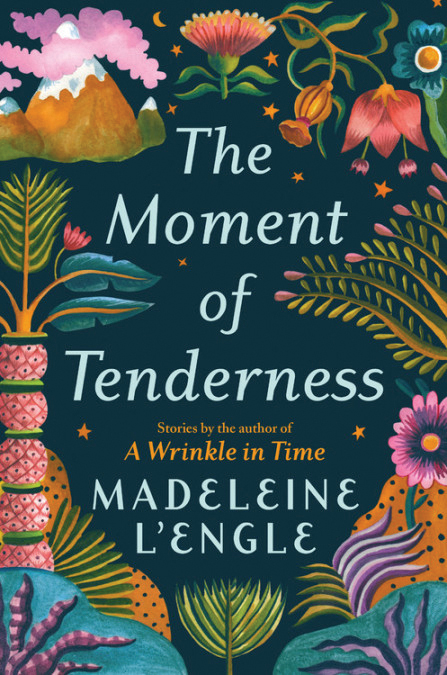

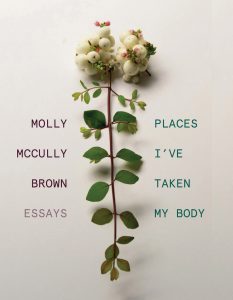

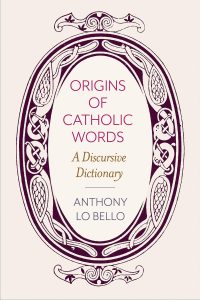
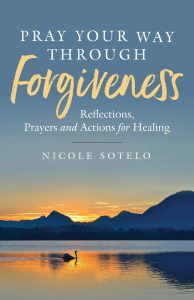
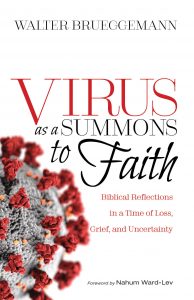

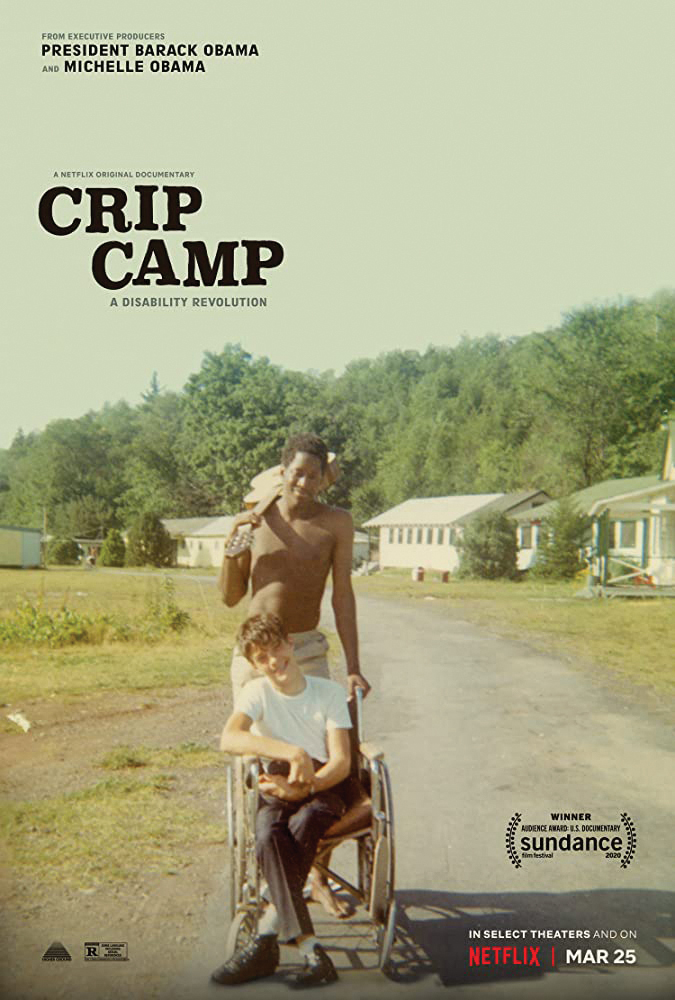











Add comment